 Weird Stuff
Weird Stuff  Weird Stuff
Weird Stuff  Movies and TV
Movies and TV Top 10 Ghost Adventures Episodes That Will Haunt You Forever
 Animals
Animals Ten Animals That Produce and Store Toxins in Unlikely Places
 Weird Stuff
Weird Stuff 10 Weird Things That Warp Your Sense of Time
 Miscellaneous
Miscellaneous Ten More Extremely Unexpected U.S. State “Firsts”
 Humans
Humans 10 Ideas That Scare People to Death
 Music
Music The Cursed Decade: 10 Classic Rock Stars Who Had Low Periods in the 1980s
 Health
Health 10 Crazy Ways Sleep Deprivation Can Affect You
 History
History 10 Enthralling Facts about the Field of Cloth of Gold
 Pop Culture
Pop Culture The Ten Greatest Engineers in Science Fiction History
 Weird Stuff
Weird Stuff 10 Surprising Things That Were Designed to Stop Evil Behavior
 Movies and TV
Movies and TV Top 10 Ghost Adventures Episodes That Will Haunt You Forever
 Animals
Animals Ten Animals That Produce and Store Toxins in Unlikely Places
Who's Behind Listverse?

Jamie Frater
Head Editor
Jamie founded Listverse due to an insatiable desire to share fascinating, obscure, and bizarre facts. He has been a guest speaker on numerous national radio and television stations and is a five time published author.
More About Us Weird Stuff
Weird Stuff 10 Weird Things That Warp Your Sense of Time
 Miscellaneous
Miscellaneous Ten More Extremely Unexpected U.S. State “Firsts”
 Humans
Humans 10 Ideas That Scare People to Death
 Music
Music The Cursed Decade: 10 Classic Rock Stars Who Had Low Periods in the 1980s
 Health
Health 10 Crazy Ways Sleep Deprivation Can Affect You
 History
History 10 Enthralling Facts about the Field of Cloth of Gold
 Pop Culture
Pop Culture The Ten Greatest Engineers in Science Fiction History
10 Mind-Blowing Things That Happened This Week (1/18/19)
Keeping up with the news is hard. So hard, in fact, that we’ve decided to save you the hassle by rounding up the most significant, unusual, or just plain old mind-blowing stories each week.
This week was one marked by just how little seemed to be changing, in the US and UK at least. In Washington, the longest government shutdown in history continued to extend its record, with no end in sight. Meanwhile, Britain stumbled through yet another highly significant Brexit crisis that somehow managed to change absolutely nothing. Elsewhere, we had our usual mix of violence and misery, plus a strange record broken. Hold on tight . . .
10 The Brexit Crisis Reached Its Climax (And Then Nothing Changed)
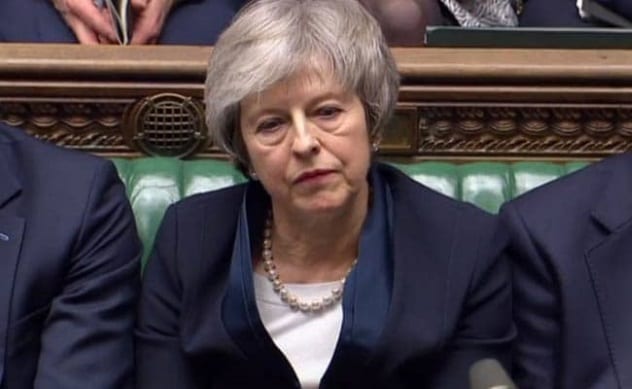
You’ve got to hand it to Theresa May; her ability to cling to power no matter what happens would earn her the respect of limpets. On Tuesday, the UK government suffered the single biggest House of Commons defeat in British history, as a thumping majority of 230 MPs voted against May’s Brexit deal.[1]
In any other period of modern British history, that sentence would be followed by, “In the aftermath, May announced her resignation . . . ” But these are unusual times. Despite having kicked down the very foundations of the current government, Conservative rebels and the Northern Irish DUP then voted on Wednesday to keep May in power. After all that high drama, nothing had changed.
This is particularly bizarre when you realize that means nothing has changed with the Brexit bill, either. Although May has now invited leaders of other parties to talks, she hasn’t changed her red lines and seems basically unwilling to renegotiate anything. In other words, that means yet more fun on the Brexit carousel as everyone keeps rehashing the referendum arguments and Britain spins toward the abyss. There are now barely 70 days until the Brexit deadline. Tick tock, tick tock.
9 The US Government Shutdown Broke Records (And Nothing Changed)
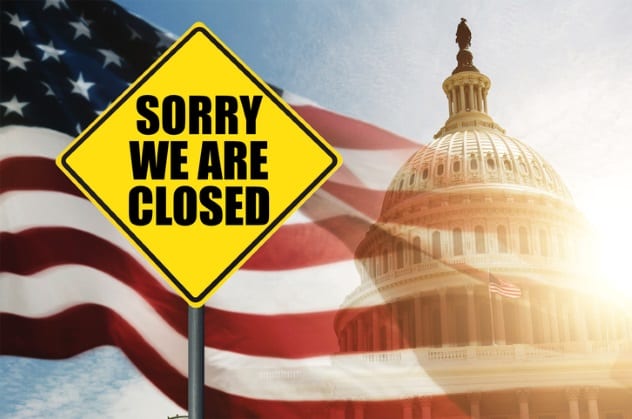
Swooosh! That was the sound of the current US government shutdown swishing past the previous record-holder to become the longest in history. Now 28 days in, the shutdown is within range of doubling the length of 2013’s 16-day shutdown. And still there is no end in sight.
The effects have become noticeable. On January 15, 42,000 US Coast Guard members missed their first paycheck, with Coast Guard commandant Admiral Karl Schultz claiming it was the first time in history that servicemen and women had been denied pay due to a funding gap.[2] Across the nation, national parks operated on a skeleton staff, museums were shuttered, Native tribes were denied funding, and there were reports of the economy taking a hit.
Perhaps most dramatically, Democrat House speaker Nancy Pelosi used her prerogative to disinvite the president from making his State of the Union address to Congress unless the shutdown is resolved, an unprecedented move. For some, this will be a reason to cheer. For others, it’ll be a sign that Democrats are playing politics.
8 The Biggest Gathering In The History Of Humanity Began
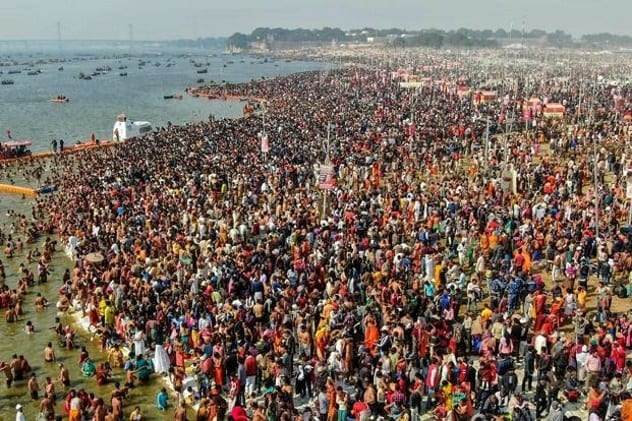
It may be the biggest single gathering in the history of humanity. For well over two decades, India’s Hindu Kumbh Mela festival has been called the biggest on Earth, but now it may have smashed temporal boundaries, too. On Tuesday, the festival began with an estimated 15 to 20 million people in attendance. By peak time on February 4, that number is expected to have risen to 30 million. By the time it all ends on March 4, it’s thought that some 120 million people will have attended.[3]
Depending on your definition of a city, that means that come February 4, the tent city erected for the Kumbh could be the second-largest city on Earth, behind only the Tokyo metro area. There will be more people at this one festival than live in Texas or Australia. We’re talking seriously big.
The Kumbh Mela is held properly every 12 years, at the point where the Ganges, Yamuna, and Saraswati meet. This year’s festival technically isn’t even a full one; it’s an “ardh Kumbh,” a mini-festival falling midway between the last and next full Kumbh Mela. Nonetheless, attendance is expected to far exceed that of 2013’s full Kumbh Mela.
7 The US Threatened To Devastate The Turkish Economy
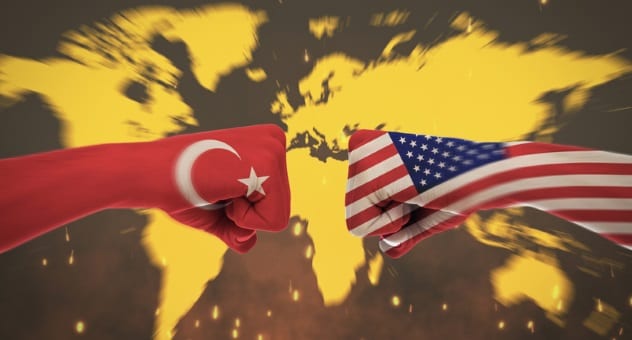
The US commitment to withdraw from Syria is still less than a month old, and already, it’s causing all sorts of complications. One of the biggest is what will happen to Syria’s Kurdish minority.
During the all-out war against ISIS, the Kurds were America’s number-one ally and can conceivably take credit for defeating the death cult. However, Turkey considers them a terrorist organization linked to their own Kurdish insurgency and have vowed to crush them. With the US gone, a Turkish attack on Syria’s Kurds seems inevitable.
Or does it? On Sunday, President Trump sent a warning shot across Ankara’s bow. If Turkey attacks the Kurds, the US will “devastate Turkey economically.”[4]
Back in 2018, US sanctions related to the detaining of a pastor exacerbated Turkey’s lira crisis, leading to stagflation. Washington clearly expects to be able to turn the screws similarly in the future. However, Ankara may not be deterred. With Turkey seeing the Kurds as an existential threat, convincing them not to start a war will be very tricky indeed.
6 A Polish Politician Was Assassinated Onstage

It was an attack that left an entire nation reeling. On Sunday, the mayor of the Polish port city of Gdansk, Pawel Adamowicz, took to the stage before a crowd to help raise money for a charity event. As he was speaking, a man rushed onstage with a knife and stabbed him. Adamowicz died in hospital a day later. His death marks the first major assassination in Polish politics since the fall of Communism.[5]
Adamowicz was a prominent leftist in Polish politics, having been a fixture in Gdansk for over two decades. Although his assassin was mentally ill, the attack came at a time of heightened tensions in Poland, and many were quick to blame the poisonous rhetoric seeping into politics. Many noted the charity festival had been a target of online hatred for its perceived left-wing streak. (Its former motto was, “Do what you want.”)
Tensions are similarly high all across Europe. The 2016 assassination of British MP Jo Cox is still fresh in politicians’ minds, as is the severe beating of German right-wing politician Frank Magnitz earlier this month.
5 Terrorism Returned To Nairobi
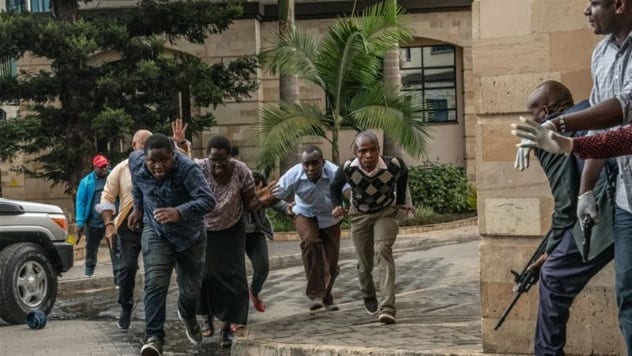
Of all the world’s Islamist terrorist groups, Al-Shabab may be the deadliest one you almost never hear about. Mostly based out of Somalia, the Al-Qaeda affiliate may not quite rival ISIS or Boko Haram in its reach, but it’s still capable of awful atrocities. On Wednesday, they exploded onto the news again, this time by launching an attack in Nairobi. It was the deadliest attack to hit the Kenyan capital since the 2013 Westgate Mall siege.[6]
Five militants stormed the DusitD2 luxury hotel complex, triggering a hostage crisis. By the time the attackers were killed, over 21 civilians—including one American and one Briton—had been murdered. At time of writing, 50 people remain missing, meaning the death toll may yet climb.
Al-Shabab claimed the attack was in retaliation for the US recognizing Jerusalem as Israel’s capital, which seems a tad disingenuous, as the majority of those killed were Kenyans. Still, it does illustrate how even the collapse of ISIS and the hobbling of Al-Qaeda and Boko Haram hasn’t eradicated Islamist terrorism.
4 The ICC Found Ivory Coast’s Former President Not Guilty
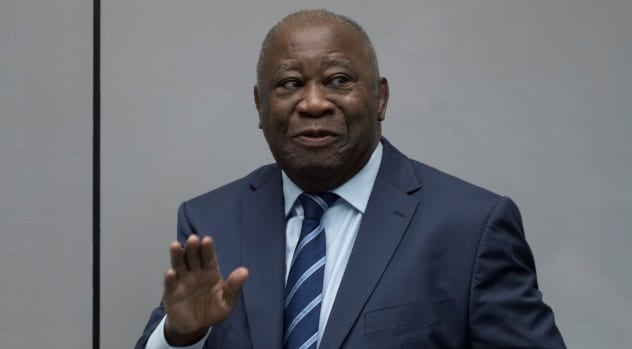
In 2010, a bitterly contested election in Ivory Coast devolved into chaos after defeated incumbent Laurent Gbagbo refused to concede. In the violence that followed, over 3,000 were killed, with Gbagbo shouldering most of the blame.
In the aftermath of the near-war, Gbagbo was extradited to The Hauge and held for trial at the International Criminal Court (ICC). This week, after nearly eight years, a panel of three judges reached their verdict on charges of crimes against humanity. To the shock of many, they unanimously found Gbagbo not guilty.[7]
It’s tricky to know how to read this. On the one hand, Gbagbo’s refusal to stand down clearly triggered violence, but that’s not quite the same as him actually ordering massacres. It’s also arguably good for the ICC to return some not guilty verdicts, because if every trial ended in a conviction, it would suggest that the ICC was basically a kangaroo court.
Gbagbo remains in custody as the prosecution launches an appeal, but it seems likely he will go free. However, he may not be able to return home. An Ivorian court convicted him in absentia last year for misuse of funds. He faces 20 years in jail.
3 Juan Guaido Prepared A Legal Coup In Venezuela
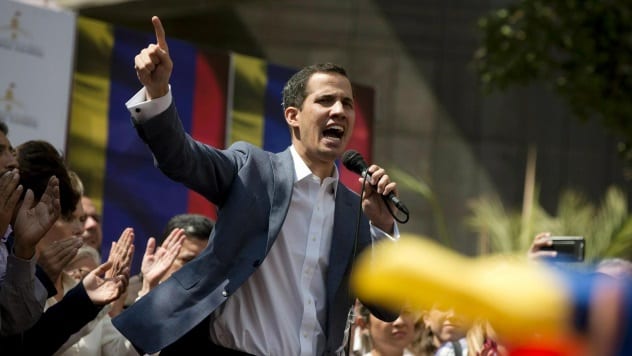
Prior to last Friday (and possibly until this very moment), you’d probably never heard of Juan Guaido. A one-term lawmaker in Venezuela, he was made head of the opposition-controlled National Assembly earlier this month. While Maduro’s bumbling dictatorship no longer recognizes the National Assembly, most other nations do, as does the Venezuelan constitution.
Now comes the interesting part. According to that same constitution, the leader of the National Assembly automatically becomes president during a “vacuum of power.” As Maduro was sworn in for a second term on Friday, following an election marred by vote-rigging, Guaido declared the nation’s current crisis could constitute a vacuum. If the courts and military agree, he would be able to topple Maduro in a kind of legal coup.[8]
That’s a massive “if,” but it could just happen. Guaido is the first person to unite the opposition in a long time. He’s popular. He’s charismatic. And, we can’t stress this enough, he’s not Maduro. If Guaido goes for it and succeeds, he would have to call elections within 30 days.
Already, Brazil has recognized Guaido as Venezuela’s legitimate president, and there are rumors that the US is preparing to follow suit. While it could lead to clashes, it could also finally lead Venezuela out of its crisis.
2 We Learned The Horrifying Extent Of The DRC’s Recent Violence
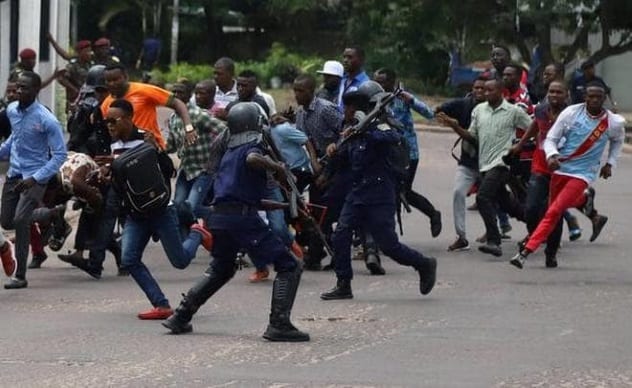
Last week, we told you about the disputed election in the Democratic Republic of the Congo (DRC) and how it held the potential to suddenly spill over into violence. As trouble continues to swirl around the result, this week we got a reminder of just how explosive the DRC can be.
On Wednesday, the UN released a report into ethnic violence in the country’s northwest last month that coincided with the election. They found that 890 people had been killed in just three days of violence, with 16,000 forced into exile.[9] The staggering death toll occurred in the area around a normally peaceful city and led to the government cancelling the election in the province.
While it’s unknown if the violence was directly related to the vote, the unrest was still shocking. Schools, hospitals, and the office of the electoral commission were burned, alongside over 400 homes. As bad as this was, it’s what it potentially bodes for the future that’s scariest. With accusations continuing to fly of the election being stolen, it’s all too easy to see how we could have another massacre on our hands if people aren’t careful.
1 We Discovered The FBI Had Opened A Probe Into The President’s Russia Ties
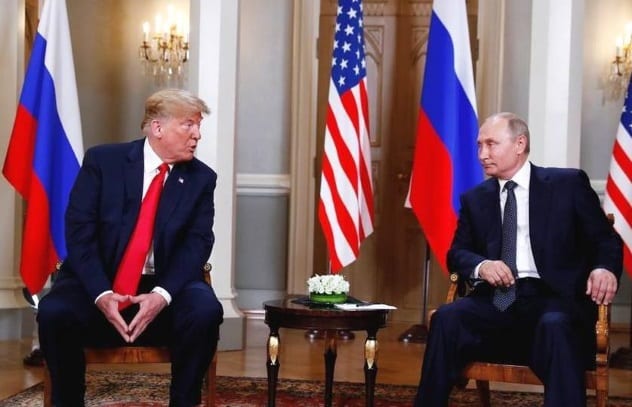
Last Friday, The New York Times dropped a bombshell on Capitol Hill. The paper revealed that, in the wake of the firing of James Comey, the FBI set up a probe into whether the president himself was not just compromised by Moscow but actively working for them. Although some people responded with, “Well, duh, of course the FBI would think that,” the story was still hugely significant.[10]
Pretend, for a moment, that you hadn’t been hearing the words “Russia,” “collusion,” and “inquiry” nonstop since November 2016. The mere fact that the FBI thought the president might be a Russian agent would be so incredible that you’d feel like you were suddenly living in a thriller. Add in a counter-case about potential FBI bias, and you’d think you were witnessing the biggest political moment since Watergate.
And maybe you are. While we still don’t know the conclusion of the FBI’s probe, or even if it has concluded, its mere existence raises two insane possibilities. One is that we are all now living in a real-life mash-up of The Manchurian Candidate and season five of 24. The other is that the FBI is effectively spearheading a coup against the president.
You likely already have an opinion on which is most likely. But whatever your leanings, there’s no doubt that we’re now living in interesting times where US politics is concerned. And things just got a whole lot more interesting.
Missed the news lately? Catch up on more mind-blowing events from January 11, 2019, and December 21, 2018.








